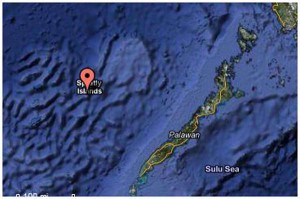FORMER Cabinet members are asking Congress to pass immediately a law that would define the country’s baseline in keeping with the United Nations Convention on the Law of the Sea or UNCLOS.
The Former Senior Government Officials (FSGO), in a statement issued on July 11, cited the need to enact a baseline law in view of the May 13, 2009 deadline set by UNCLOS for archipelagic states to deposit technical data to support their claims on their extended continental shelves.
Last December, the House of Representatives passed on second reading House Bill 3216 which includes Scarborough Shoal and Kalayaan Island Group (KIG) in the disputed Spratlys Group in the archipelagic baseline.
Action on the bill has been deferred on Malacanang’s request. The Palace wants the shoal and KIG treated as “regime of islands.”
The Senate has several pending baseline bills, including those of senators Antonio Trillanes IV, Miriam Defensor-Santiago, Rodolfo Biazon and Edgardo Angara.
The FSGO is made up of officials who occupied Cabinet or sub-Cabinet positions under six Philippine presidents. They banded together early this year to condemn “the corruption and abuse of power of Gloria Macapagal Arroyo while occupying the Office of President.”
FSGO’s statement on the baseline bill:
Pass a proper baselines bill pronto!
We, Former Senior Government Officials (FSGO), urge the swift passage of a baselines law that reflects our true historical borders and the maritime boundaries that respect provisions of the United Nations Convention on the Law of the Sea (UNCLOS). The May 13, 2009, deadline set for archipelagic states to pass a definitive baselines law and submit this to the United Nations (UN) under provisions of the UNCLOS is fast approaching. It is therefore time to “get our act together.”
As signatories to UNCLOS, it is our duty within the realms of international law to abide by its provisions while maintaining our sovereignty, while upholding historical claims with regard to our national territory, and while respecting other bilateral and multilateral agreements that affect claims to maritime territories.
In the mapping of our baselines, history will remind us that the Philippines is no mere signatory to UNCLOS. It was the Philippine representatives to the Convention who proposed the concept of the archipelagic doctrine; evolved it, defended it, and had it accepted by the conference.
The Philippines being an archipelago according to UNCLOS criteria, adherence to the deadline for delineating its revised baselines may define areas of great import especially to developing archipelagic countries such as the Philippines – the extent of maritime jurisdiction, zones of economic development, areas of strategic importance for national security, and areas subject to resource and environmental management.
As we speak, as we debate the merits and demerits of the various options in determining the scope and breadth of our baselines, other island and archipelagic countries are conducting technical surveys to determine their maritime baselines, especially their Extended Continental Shelf (ECS) based on criteria of UNCLOS article 76 (prior to the submission of their official baselines claims at the UN). Why are they moving on defining their baselines by the set deadline, and why are we stagnant?
The UNCLOS gives signatory states the freedom to place within its maritime boundaries all waters and the islands and islets embraced therein, as well as to determine its Extended Continental Shelf based on these boundaries. It is high time we maximize the options provided by the UNCLOS as the May 2009 deadline approaches.
As this issue has gotten rolling in the legislative branch of government, let the legislative mill take its course and let it not be hampered at this late hour by last-minute executive monkey-wrenches, highly-partisan wrangling, nor by informal communiqué from foreign governments.
The territorial integrity and the sovereignty of the Philippines are at stake. The final decision on the baselines will affect the Philippines for generations to come. The implications on national security, economic resource development, the proprietary rights of our Sulu sultanate, and even food security are vast. Let neither issues of corruption, such as the ZTE-NBN deal, nor joint undertakings with questionable constitutionality such as the JMSU, derail the passage of this most historic piece of legislation.

